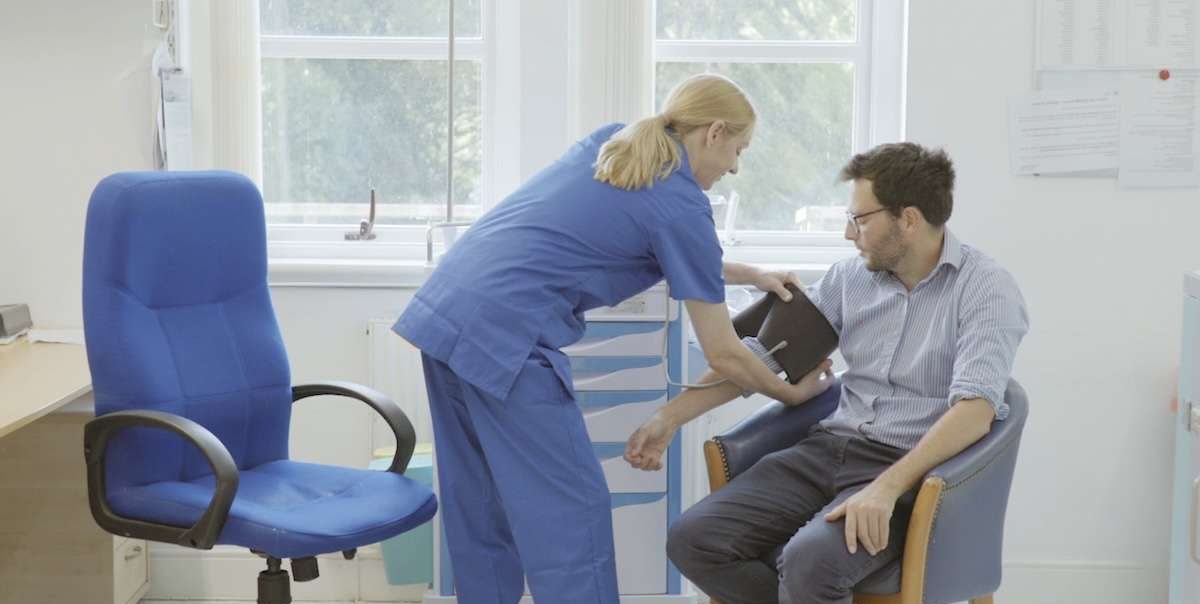
Residential Tramadol Detox Treatment
Castle Craig offers medically managed Tramadol detox set within the safety and privacy of our residential centre in the heart of the Scottish Borders. With an experienced multidisciplinary team, we focus on delivering evidence-based care tailored to Tramadol withdrawal and recovery. Our 28-day and longer-term Tramadol rehab treatment combines therapeutic support with a holistic approach, helping you find balance and strength in a calm, natural environment surrounded by stunning scenery and wildlife.
This article provides helpful guidance on key topics, including how long it takes to detox from Tramadol, Tramadol withdrawal symptoms and medically managed drug detox plans, among others. If you’re seeking effective and supportive treatment, we are here to guide you every step of the way. Contact Castle Craig on 01721 546 263 to learn more about our medically managed Tramadol detox and start your path to recovery today.
What is Tramadol Detoxification?
Tramadol detoxification is the process of safely clearing Tramadol from your body, often carried out under medical management to help reduce and manage withdrawal symptoms. Safe Tramadol detox allows the physical effects of stopping drug use to be handled in a controlled and supportive manner.
A medically managed Tramadol detox is vital for your safety and comfort during withdrawal, as it helps minimise risks and provides relief where possible. The detox process is an essential first step for many people in overcoming Tramadol dependency, laying the groundwork for effective recovery and long-term well-being.

Start Your Recovery at a Residential Rehab Today
What is a Medically Managed Tramadol Detox?
A medically managed detox for Tramadol provides professional care to help you safely manage withdrawal symptoms while your body adjusts. This process ensures that any physical discomfort is attended to, offering a secure and supportive environment for the initial stages of recovery.
Medical Tramadol detox typically includes careful monitoring, tailored guidance and, where necessary, medication to help ease withdrawal symptoms. By focusing on your safety and comfort, a medically managed detox provides the foundation you need for a successful and sustainable recovery from Tramadol addiction.
Difference Between Medically Managed Tramadol Detox and Medically Supervised Tramadol Detox
A medically managed Tramadol detox involves active medical care, with professionals delivering treatment to address withdrawal symptoms directly. In contrast, a medically supervised detox provides monitoring and oversight but may involve less hands-on medical intervention during the process.
The higher level of care in a medically managed detox includes personalised medical support, ongoing monitoring and symptom relief, making it particularly effective for those requiring greater assistance during Tramadol withdrawal. It offers enhanced protection and peace of mind to patients, especially for complex or challenging cases of Tramadol dependency.
Free Tramadol Addiction Assessment
Castle Craig provides free drug addiction assessments at the start of treatment for Tramadol addiction. These initial consultations help us understand your needs and circumstances, allowing us to recommend the most appropriate path towards recovery.
Following this free assessment, we can develop a tailored residential treatment plan designed to support your rehabilitation. By addressing your specific challenges, Castle Craig makes sure you receive the right care to help you move forward on your recovery journey. Fill out our online form to tell us your information and request a call back.


Benefits of Inpatient Residential Tramadol Detox and Withdrawal Treatment
Opting for inpatient rehab treatment during Tramadol detox offers numerous advantages. Residential care provides medical expertise, emotional support and a focused environment to help patients cope with the challenges of opioid withdrawal and abstinence.
The benefits of inpatient rehab extend beyond physical safety, addressing various aspects of healing. Below, we outline some of the specific ways that inpatient treatment supports a successful recovery.
-
24/7 Medical Supervision for Safe Tramadol Withdrawal
Round-the-clock medical care is one of the most significant benefits of inpatient residential treatment. Tramadol withdrawal can involve serious physical symptoms that require immediate attention, especially in cases of complications like dehydration or rapid heart rate. A dedicated medical team is always on hand to provide necessary interventions.
Constant access to medical professionals creates a sense of security during what can be a difficult Tramadol tapering schedule. Skilled specialists closely monitor progress, allowing patients to focus entirely on their recovery without the worry of unmanaged health concerns.
-
Personalised Detox Plans with Medication Support
Personalised detox plans are tailored to meet the unique needs of each individual. By considering factors like medical history, substance use patterns and mental health, experts develop strategies designed for effective healing from prescription drug addiction.
Medication support may be included in Tramadol detox plans to ease withdrawal symptoms and make the process less overwhelming. Customised treatment helps to forge a manageable path forward, creating confidence in the recovery process.
-
Effective Management of Tramadol Withdrawal Symptoms
Tramadol withdrawal symptoms such as nausea, muscle pain and restlessness can be challenging, but inpatient care focuses on alleviating these issues. Medical professionals use evidence-based techniques to reduce discomfort and stabilise patients during inpatient drug detox.
Addressing individual symptoms directly helps improve comfort levels and supports physical recovery. Managed withdrawal not only relieves distress but also creates a healthier foundation for moving forward in the rehab treatment process.
-
Mental Health and Emotional Support Throughout Detox
Withdrawal can take a toll on emotional well-being, making mental health and dual diagnosis support a critical component of inpatient treatment. Access to qualified professionals allows for addressing psychological challenges like anxiety, depression or trauma during detox.
The counselling and emotional care provided in residential facilities during this period help you feel understood and supported. Focusing on mental health also strengthens resilience and creates a positive outlook on your recovery journey.
-
Secure, Trigger-Free Environment to Prevent Relapse
A controlled and supportive setting offers protection against potential triggers and relapse. Private facilities remove access to Tramadol and shields patients from external influences that could disrupt recovery efforts.
The absence of harmful distractions allows you to channel your energy toward healing. Being in a highly focused environment helps reinforce your commitment to long-term sobriety during the crucial early stages of Tramadol detox and rehab.
-
Structured Daily Routine to Promote Stability and Healing
A reliable daily schedule is a key element of inpatient treatment. Activities such as therapy sessions, nutritious meals, physical exercise and rest breaks create a sense of balance and organisation.
Routines like these promote stability by giving patients a clear structure to follow throughout the day. Consistent practices reduce unpredictability and encourage long-term habits that support sustained recovery.
-
Access to Counselling and Therapeutic Support
Therapy is a vital part of inpatient programmes, addressing the deeper issues behind Tramadol use. Regular addiction counselling sessions offer a safe space for patients to identify underlying causes and develop healthier coping mechanisms.
Both individual and group sessions provide opportunities for self-reflection and shared experiences. Integrating therapy into treatment supports emotional healing to progress in parallel with physical recovery.
-
Smooth Transition into Ongoing Addiction Recovery Programmes
The end of a safe Tramadol detox is just the beginning of a broader recovery process. Access to residential rehab, aftercare planning and ongoing support programmes helps progress made during detox lead seamlessly into the next stages of Tramadol rehab treatment.
Establishing a plan for continued growth safeguards the strides you’ve achieved during the stages of Tramadol detox. Professional guidance during this transition maintains your momentum and builds a solid foundation for lifelong sobriety.
Private Medically Managed Tramadol Detox Centre Near Me
Castle Craig offers private, medically managed Tramadol detox in our inpatient rehab centre, delivering professional care in a residential rehab setting. With a focus on safety and support, we help people overcome Tramadol dependency in a secure and therapeutic environment. Our goal is to provide the care you need to begin a healthier and brighter future.

Contact Castle Craig Residential Detox Centre
Castle Craig is located in West Linton, Edinburgh, United Kingdom, EH46 7DH. Set amidst a peaceful and accessible environment, our centre offers a welcoming and calming atmosphere for your recovery. Our location provides the privacy and tranquillity you need to focus on overcoming Tramadol dependency.
Find Us
01721 546 263
info@castlecraig.co.uk
Castle Craig,
West Linton, Edinburgh, United Kingdom, EH46 7DH
To learn more about residential treatment for Tramadol addiction, call us on 01721 546 263. Our team is here to answer your questions and explain how we can support you on your recovery path. We are always ready to help you take the first step towards a better tomorrow.
-
How to Find Private Inpatient Tramadol Detoxification Centres Near You
Finding the right private inpatient Tramadol detox centre in the UK is an important step towards recovery. To make the best choice, consider these key factors when looking for inpatient rehab treatment. Conduct thorough research and assess your needs to identify Tramadol addiction treatment centres near you that offer the care, support and expertise you require.
- Search for “Private Tramadol Detox Near Me” or Include Your Location: Begin your search online with targeted phrases such as “Private inpatient Tramadol detox centre near me,” “Tramadol detox clinic in UK,” or “Medically managed Tramadol detox UK.” Including your location can help narrow your search to nearby prescription drug rehab centres for added convenience.
- Look for Medical Supervision and 24/7 Support: Safety is paramount during detoxification. Opt for a Tramadol misuse recovery centre that provides 24/7 medical care to manage withdrawal symptoms and address any complications as they arise. Around-the-clock support allows you to feel secure throughout this critical phase.
- Read Reviews and Testimonials: Take time to read feedback from previous patients. Honest reviews and testimonials can offer insight into the quality of care, the professionalism of staff and the overall experience at Tramadol rehab centres with detox facilities. Look for stories that resonate with your needs.
- Consider What’s Included in the Programme: A comprehensive programme can make a significant difference in your recovery. Check whether the centre offers medical care, therapy sessions, group support or holistic treatments such as yoga and meditation to support your overall well-being.
- Enquire About Costs and Payment Options: Understanding the financial commitment is crucial. Ask about the price of Tramadol detox programmes and whether payment options, such as instalments, are available. Transparent information on the cost of drug rehab avoids surprises later on.
- Check if They Accept Health Insurance: Verify whether the detox centre works with health insurance providers, such as Aetna or Aviva, and if your policy covers the cost of Tramadol detox. This can significantly reduce out-of-pocket expenses and make quality care more accessible.
Find Out About Our Residential Tramadol Detox Treatment
At Castle Craig, we offer free prescription medication drug addiction assessments as part of our admissions process. These assessments help us understand your unique situation and recommend the best approach to your sobriety journey.
Based on your assessment, we create tailored medically managed detox and Tramadol addiction recovery plans. Our expert team provides the care and support you need for a safer, more effective rehab experience. Call us today on 01721 546 263 to share your story and request our help.
Free Tramadol Addiction Assessment
Taking the first step and asking for help can feel daunting, but our team is here to assist you.
Signs, Symptoms and Effects of Tramadol Withdrawal & Detoxification
Tramadol withdrawal can present a range of signs, symptoms and effects, which vary from person to person. Below are some common experiences individuals may encounter during Tramadol withdrawal and detox. Please note, this is not a comprehensive list, and seeking professional guidance is always recommended.
-
Early Signs of Tramadol Withdrawal
Early opioid withdrawal symptoms usually begin within a few hours to a day after the last dose. These signs are often moderate and signal the body’s initial reaction to the absence of Tramadol.
- Restlessness or irritability: A feeling of unease or frustration often arises as the body starts adjusting to lower drug levels.
- Sweating or clamminess: Many people experience excessive sweating as the body works to rebalance its internal systems.
- Anxiety or unease: A heightened sense of worry or tension frequently accompanies early Tramadol withdrawal stages.
- Runny nose and watery eyes: Flu-like symptoms, such as nasal congestion and watery eyes, are common as withdrawal begins.
- Muscle aches or tension: Generalised discomfort and stiffness can occur as the body starts resetting itself.
-
Moderate to Severe Symptoms of Tramadol Withdrawal Syndrome
Moderate to severe symptoms often appear after the initial phase, usually within 24 to 72 hours, and can be more physically intense.
- Nausea, vomiting or diarrhoea: The digestive system can react strongly during more severe stages of Tramadol withdrawal, often leading to gastrointestinal upset.
- Severe headaches or body pains: Intense pain throughout the head and body is a frequent complaint during this phase.
- Elevated heart rate or blood pressure: Cardiovascular irregularities such as a racing heartbeat or high blood pressure may develop.
- Shaking or tremors: Uncontrollable muscle tremors can occur as the nervous system struggles to stabilise.
- Chills or hot flushes: Sudden temperature fluctuations may result in bouts of shivering or overheating.
-
Psychological Effects of Tramadol Withdrawal
Psychological symptoms can set in at any point, usually peaking alongside physical symptoms, and may persist for days or weeks.
- Depression or low mood: Emotional withdrawal symptoms often include sadness or a sense of hopelessness.
- Panic attacks or heightened anxiety: Heightened anxiety levels may escalate, causing episodes of acute panic.
- Mood swings or emotional outbursts: Rapid shifts in mood, including irritability and anger, are common during withdrawal.
- Sleep disturbances or vivid nightmares: Disrupted sleep patterns and unsettling dreams frequently affect those going through the phases of Tramadol withdrawal.
- Cravings and obsessive thoughts about the drug: Intense urges to consume Tramadol are common and can be difficult to manage without support.
-
Physical Signs and Symptoms During Tramadol Detoxification
During the Tramadol detox timeline, the body continues to recalibrate, which may result in various physical challenges that often persist for several days.
- Insomnia or disrupted sleep patterns: Difficulty falling or staying asleep is a common complaint during opioid detox programmes.
- Fatigue and weakness: The body’s energy levels may drop significantly as it uses its resources to recover.
- Digestive upset and poor appetite: Upset stomach, nausea and a reduced appetite often accompany Tramadol detox.
- Flu-like symptoms: Symptoms resembling the flu, such as body aches and chills, are not uncommon.
- Increased sensitivity to pain: Heightened perception of physical discomfort may occur while the body readjusts.
-
Long-Term Effects Without Proper Tramadol Detox Support
Without a structured Tramadol detox programme, some effects of withdrawal may extend over the long term, impacting mental, physical and emotional health.
- Persistent anxiety or depression: Ongoing mental health struggles may linger without adequate care and coping strategies.
- Risk of relapse and overdose: Returning to Tramadol use raises the risk of overdose due to reduced tolerance.
- Ongoing sleep and appetite issues: Poor sleep quality and irregular eating habits may continue to disrupt daily life.
- Reduced cognitive function or focus: If left untreated, trouble concentrating and memory challenges may persist after stopping Tramadol without detox support.
- Chronic emotional instability or irritability: Mood imbalances may also continue without supportive interventions.
Understanding these signs, symptoms and effects of Tramadol withdrawal and detox highlights the importance of professional help. A medically managed detox provides the necessary foundation for a safer, more supportive recovery process.

Medications Used for Tramadol Detoxification
Medications may or may not be part of a Tramadol detoxification plan. Their use depends on individual needs, medical history and the severity of addiction. Below are prescribed medications for Tramadol detox that a clinician may consider to support the process.
- Clonidine: Clonidine helps reduce symptoms of opioid withdrawal, such as sweating, restlessness and rapid heart rate, by calming the body’s stress response.
- Gabapentin: Gabapentin can ease nerve-related Tramadol withdrawal symptoms, including muscle aches, restlessness and anxiety, while supporting overall comfort during detox.
- Lofexidine: Lofexidine is effective in reducing withdrawal symptoms like anxiety, chills and irritability by regulating the body’s response to stress.
- Buprenorphine: Buprenorphine alleviates withdrawal symptoms and cravings by acting on brain receptors in a controlled, less euphoric way compared to opioids.
- Methadone (less common for Tramadol): Methadone is occasionally used for severe cases to stabilise withdrawal, although it is less commonly prescribed for Tramadol detox.
- Diazepam (short-term use for anxiety or agitation): Diazepam (Valium) is prescribed short-term to address anxiety, agitation, or muscle spasms that may occur while managing Tramadol cravings. Valium can be effective when managed carefully in a professional detox centre, but it carries a high potential for dependence and misuse.
- Paracetamol or NSAIDs (for pain relief): Paracetamol or non-steroidal anti-inflammatory drugs provide relief from common withdrawal-related pains, such as headaches or muscle soreness.
- Ondansetron (for nausea): Ondansetron helps manage nausea and vomiting during Tramadol detox, contributing to better hydration and recovery comfort.
- Sleep aids (e.g. melatonin or short-term sedatives): Sleep aids like melatonin or mild sedatives support normal sleep patterns disrupted during withdrawal, helping the body recover faster.
At Castle Craig, we approach the use of detox medications with the highest level of responsibility so that they do not result in a new dependency. We understand that this may be a concern for some patients, and we are here to assure you that detox medicines are prescribed only when clinically necessary and are closely managed under the care of our Consultant Psychiatrist and trained medical staff.
Our goal is to alleviate withdrawal symptoms safely while focusing on your overall recovery and the goal of abstinence. By using evidence-based protocols and regularly assessing your progress, we only use detox medications as a short-term tool to support your transition into sobriety, always prioritising your long-term health, well-being and abstinence.

Contact Castle Craig Today
If you’re ready to take the first step towards recovery, contact Castle Craig to learn more about our residential treatment options, admissions process and to arrange a free Tramadol addiction assessment tailored to you. Our team is here to support you with care, compassion and expertise.
Call us today on 01721 546 263 to speak with our friendly staff. Recovery from opioid addiction is possible, break the cycle today.
Does Health and Medical Insurance Cover Tramadol Detoxification Treatment?
Yes, health and medical insurance may cover Tramadol detoxification treatment, but coverage depends on the specific terms of your policy and your insurance provider. Some plans may offer full or partial reimbursement for opioid detox in the UK.
If your insurance covers and authorises treatment at Castle Craig, we are happy to accept private health or medical insurance from many major providers. Our team can help guide you through our insurance admissions process to clarify your options – call us today on 01721 546 263.
How Much Does Residential Tramadol Detox Cost?
The cost of Tramadol detox alone in the UK typically ranges from £1,000 to £6,000 for a 7-10 day programme. However, detox is often recommended as part of a comprehensive treatment plan. Within a residential programme, Tramadol rehab costs can range from £650 to £1,500 daily, or £4,500 to £10,000 weekly.
Opioid rehab costs at UK centres may vary based on individual needs, medical requirements and the length of the treatment programme. Castle Craig includes all your addiction treatment within our bespoke pricing, and our team can help assess your situation and provide detailed information tailored to your circumstances. Contact us to discuss our different accommodation options and Tramadol rehab treatment durations.
Tramadol Detox Timeline and How Long It Takes
When required, Tramadol detox is usually the initial step in a comprehensive rehabilitation process for opioid dependency. While we outline typical detox timelines below, it’s important to consider completing a full rehab programme for long-term recovery. Healthcare professionals will recommend the best course of action tailored to your needs following an initial assessment.
-
Stage 1: Early Withdrawal Symptoms (6–12 Hours After Last Dose)
The first stage of Tramadol detox usually begins within six to twelve hours after the last dose. During this period, individuals may experience mild signs of withdrawal such as restlessness, sweating and anxiety. Stage one symptoms occur as Tramadol levels start to decrease in the body, and it adjusts to functioning without the drug.
Early Tramadol withdrawal symptoms can vary depending on factors like the length of use and dosage. While these signs are uncomfortable, early medical support can help ease this transition, offering comfort and reassurance without the need to manage it alone.
-
Stage 2: Peak Tramadol Withdrawal Symptoms (24–72 Hours)
Withdrawal symptoms often peak after 24 to 72 hours without Tramadol. At this stage, people may experience more intense challenges such as nausea, diarrhoea, muscle aches, trembling and heightened anxiety. Cravings for Tramadol may also increase during this period.
Despite the severity of symptoms during the stages of detox from Tramadol, professional supervision provides essential care. Medical support can include both physical and emotional relief, reducing discomfort while offering guidance to prevent the risk of complications or relapse.
-
Stage 3: Subsiding Symptoms and Stabilisation (3–7 Days)
After the peak phase, Tramadol withdrawal symptoms gradually begin to subside over the next few days, typically by day three to seven. Physical discomforts like pain and nausea become more manageable, and energy levels may slowly start to return. Emotional stability can also begin to improve during this phase.
The stabilisation period is vital for laying the foundation of recovery beyond detox. With professional guidance, you can be supported and monitored to strengthen your physical and emotional resilience, helping you transition into the next phase of Tramadol rehab with a steady mindset.

Related Guides on Medically Managed Residential Detox
Detox Centre | Inpatient Detox | Alcohol | Drugs | Cocaine | Heroin | Crystal Meth | Valium | Tramadol | Benzodiazepines | Xanax | Codeine | Opioid | Ecstasy | Morphine |
Inpatient Medically Managed Tramadol Detox Treatment Admissions Process
Castle Craig’s ethos of person-centred care means that our inpatient Tramadol detox treatment is carefully tailored to meet your unique needs. We aim to make sure that you receive the most effective treatment for a safe and successful recovery. Below is an outline of our straightforward admissions process, designed to provide clarity and reassurance as you begin your recovery journey.
- Initial Enquiry and Confidential Consultation: The admissions process for Tramadol rehab treatment begins with your initial enquiry, during which you can speak directly with our compassionate team. We provide a confidential space to address your concerns, answer questions and help you understand the support available.
- Pre-Admission Tramadol Addiction Assessment: Before admission, you will undergo a drug addiction assessment conducted by healthcare professionals. This allows us to evaluate your specific needs and develop an appropriate medical Tramadol detox plan tailored to you.
- Confirm Insurance or Funding Options: Once the assessment is complete, we help you explore insurance coverage or funding options. Our team is here to guide you through the financial process, providing clarity every step of the way.
- Confirmation of Intake and Booking: After securing the necessary arrangements, we confirm your intake and book your admission. You’ll receive all the essential details, from your arrival day to what to bring, creating a smooth transition into our care.
- Arrival for Tramadol Detox and Rehab Treatment: Upon arrival, you are welcomed into a supportive and professional environment where your residential detox will begin under medical management. Our team will be by your side to ensure your safety and comfort as you take the first step toward lasting recovery from Tramadol addiction.
Your well-being is at the heart of everything we do at Castle Craig. If you have any questions or would like support with starting your rehab admissions process, don’t hesitate to reach out to us.
Questions About Tramadol Detox?
Contact us to discuss your treatment needs with a licensed clinician.
Find Out About Our Prescription Drug Treatment
At Castle Craig, we offer free residential addiction assessments to help you understand your treatment needs for opioid addiction rehabilitation. Our compassionate and experienced team is here to support you in taking the first steps towards recovery in a safe and professional environment.
We create tailored treatment plans designed specifically for your situation and requirements. Additionally, our team can provide detailed information about the cost of residential opioid rehab, giving you clarity and guidance as you begin this important journey. Call us on 01721 546 263 to start breaking the cycle of Tramadol addiction today.
Free & Confidential Assessment
Compassionate, expertly delivered evidence-based practices and a patient-centred approach are at the heart of our treatment model. Request a call-back from one of our professionals on any day of the week.
-
Statistics on Tramadol in the UK
- In 2023, 218 drug poisoning deaths involving Tramadol were recorded in England and Wales.
- 48% of adults in drug and alcohol treatment in England were there for opiate-related issues, amounting to 137,965 individuals.
- Over 50% of adults receiving substance abuse treatment in the UK are dealing with opioid addiction.
- 16.5% of individuals aged 16-24 reported drug use in the past year, showing a significant prevalence among younger demographics.
- 67% of opiate users entering treatment reported a need for mental health support, highlighting the importance of integrated care.